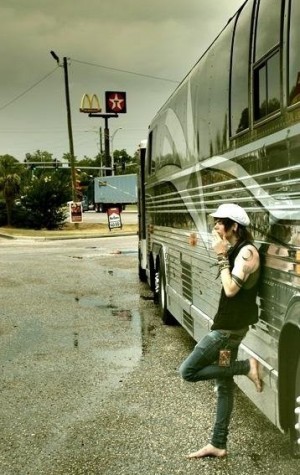Marketing Methods By Tom Colohue. Part Eleven: Branching Out
IIf you’re here to look into new and different methods by which you can market your band or artist. You’ve come to the right place. I’m Tom Colohue, and this is Marketing Methods; your guide to traversing the basics of the marketing world while avoiding the pitfalls, the traps and the unreasonable arseholes in it.
Branching Out
So you have a firm collection of fans exploring your various websites, fan pages, fliers and coming to your shows. That’s a good start. You’ve played with and against some of the hottest names in the area and showed how capable you are at being an acting ambassador for your music scene. That’s even better, because when it comes to leaving the area and taking your music scene elsewhere, those tricks will come in handy.
I’m not talking about going on tour here. Essentially, I’m just talking about going out of town. A band that’s absolutely huge in one place might be completely unheard of twenty miles away, but that’s an untapped market with unlimited potential that you need to get yourself into if you want to draw wider attention. We’re not trying to get the attention of big record label executives here; we’re trying to make a living as a musician.

Image credit: rawrshannon on Tumblr
In this situation, the old ‘it takes money to make money’ proverb comes true. Travelling becomes more expensive both the farther you go and the more you take with you, and booking a place to perform at somewhere nobody has ever heard of you can prove exceedingly difficult. This, of course, is where that ‘scene ambassador’ role comes in handy.
First off, do your research. You know what sort of music you play, where else nearby is it popular? Decide on a target location, then find out what bands are big there. Ask around, maybe go to a couple of gigs there and hand out some cards just to get your face noticed, but zero in on a couple of bands or musicians and make some contacts. A friend who might let you use their drumkit in the area saves shifting your own either on a train or in a van. In the same vein, dropping your band to an opening slot, even if you’re headlining back home, means that you can ask those contacts where they’re playing, and assure yourself a slot in front of all of their fans. This also serves as a way of introducing yourself to the venue owners and making contacts there.
Advertising will undoubtedly be more difficult when you can’t get to the area in question to put up posters and hand out fliers. As an opening act, that’s not something you really need to worry about, since it will be done for you. Saying that, a presence requires…well, presence. The major cost will be getting back and forth, but everywhere you are not known is a potential market that you aren’t taking advantage of.
When you are playing gigs, don’t forget to reward the contacts that you’ve made. If a band in that area has given you a support slot, offer them one in your area. This maintains good relationships between both bands. As an example, Muse and My Chemical Romance did a UK/USA tour. In the UK, My Chemical Romance opened for Muse, since their major market is in the USA. In the USA it was the other way around, with Muse becoming the supporting slot. There was no clash of egos, just good business by both sides.
If you become popular in this new location, as your fan page and website will undoubtedly tell you, you might begin to use the venue contacts you will have cultivated by acting as an opener. Never let a chance pass you by in this regard. Playing a set and not getting to know the owner is never a good move. A few friendly conversations and a contact number could well secure you a headline slot of your own in the future. At this point, line yourself up some gigs that don’t interfere with those in your own music scene, get all your new fans online for you and handing out fliers for you, then grab yourself a map and pick another location.
There will be an effect when you get back to town. When a band gets bigger, everybody knows it. Gigs at home will become more scarce, but the price will also go up. People will begin to travel to see you and word of mouth will spread wider and wider.
It’s a methodical process, but it’s a necessary one. The worst thing you can do through this is forget to keep those big performances going back at home. Don’t let yourselves become boring, or you’ll lose a lot of attention from the people who are most likely to pay the big money. As your local gigs become less and less, you can ask for more money, but you still want to be seen. When you leave town you will be judged as music ambassador, your job is to go to them to convince them to come to you.
Tom Colohue is a writer from Blackpool, England. Though he specialises in Fiction, he also writes music theory articles, and new media articles based primarily on the internet. On occasion, these also intermingle. He is well recognised by numerous critics and analysts for his integrative descriptive work and his cynical textual mannerisms. For more information, Tom Colohue keeps a Facebook Fan Page, which contains updates from new articles and his personal blog, Mental Streaming. This page can be found via this link.


Comments